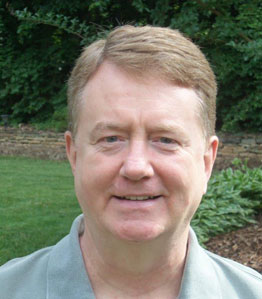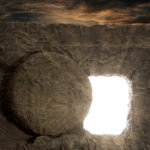In the Palm of His Hand
January 6th, 2016
‘Ah Lord GOD! Behold, You have made the heavens and the earth by Your great power and by Your outstretched arm! Nothing is too difficult for You. (Jeremiah 32:17)
It is a little-known fact, but what drove the development of the atomic bomb was not America’s fear of Japan. It was America’s fear of Germany.
Once Adolph Hitler became Chancellor of Germany in 1933, he conducted over the next 12 years a reign of unimaginable brutality. There were some in Europe with enough foresight (and money) to escape Nazi Germany and make their way to the United States. Many of these refugees were Jewish; and a few of them were some of the world’s most brilliant scientists. When they arrived in America, they brought with them a fear that Hitler was on the brink of developing a weapon he must never have.
Germany was the center for the study of nuclear physics. In a government laboratory located in Berlin, a German chemist had split an atom of uranium. And when he did, nuclear energy was discovered. The scientific community knew that this new form of energy had the potential to replace other forms such as oil and gas. They also thought that it could possibly be used to create a new kind of bomb.
News coming out of Europe was that the German War Department had taken over one of the country’s finest laboratories. Furthermore, they had outlawed the export of uranium from Czechoslovakia. So these refugee scientists believed that the German bomb project had already begun; and they were horrified at the prospect of Hitler having in his possession nuclear weapons to execute his campaign of terror.
By 1945 Germany was losing the war. And in April of that year, Hitler committed suicide. After his death, the Allies learned that he had never understood the potential of the atomic bomb. Consequently, he had not provided his atomic scientists the resources they needed to build this weapon.
And so it turned out that the weapon designed to be used against Hitler was not needed for the war in Europe. But research on the atomic bomb continued. And to end the war in the Pacific, President Harry Truman decided to use it against Japan. The atomic bomb was dropped on two Japanese cities: Hiroshima on August 6th, 1945, and Nagasaki three days later.
Have you ever seen any pictures of the aftermath of those two bombs? The power released from split atoms is awesome, to say the least. But that power does not hold a candle to the might of the One Who holds all atoms together “in the palm of His hand.”
Nowhere is the power of almighty God more clearly seen than in His work of creation. By His spoken word God created the heavens and the earth. And when He did, we were introduced to another of His Hebrew Names:
In the beginning Elohim created the heavens and the earth. (Genesis 1:1)
The Name Elohim (translated “God”) portrays God as the all-powerful One. But we should understand that He does not use His power randomly. He is highly selective in its use. God uses His power:
- to conform the lives of His people into the likeness of His Son,
- to fulfill every promise He has ever made, and
- to answer prayer.
Although I don’t think any believer would disagree with these three ways God uses His power, there is a condition that He places on the use of that power that is often ignored by many in the Church.
Elohim limits the use of His power to accomplishing His will … and His will alone.
For God to use His power (1) to change our lives and (2) to keep His promises does not bother or confuse us because that is what we want Him to do. The way He chooses (3) to answer our prayers, however, can be a different matter. What we want to receive from God is not necessarily what He wants to give us. (Sometimes He says “No.”) And when we want to get something is not necessarily when He wants us to have it. (Sometimes He says “Not yet.”) That’s because
God does not use His power to do what makes sense to us. He uses His power to do what makes sense to Him.
He has the power to answer every one of our prayers with a “Yes.” But He also has the wisdom and love to not do so.
We should thank Him for that.
How God uses His power is the subject of The God of Our Lives, chapter 8: “Elohim, Our God is All-Powerful.”
Click here to view this course: THE GOD OF OUR LIVES
Click here to view our website: STEWARD OF TRUTH PUBLICATIONS
Click here to read the 1ST chapter of The God of Our Lives: YAHWEH, OUR GOD IS OUR CREATOR
To the readers within the believing community: My wife and I would greatly appreciate your prayers, that we would respond to adversity with grace and righteousness.











